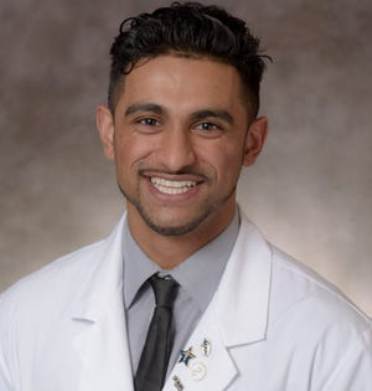Where are you really from?
A question that forces an otherness onto people
By Raveen Sugantharaj
“Where are you from?” is the question that has plagued my existence, the one that causes my stomach to drop yet that I have become accustomed to, the one that leaves me scrambling for an appropriate answer — both for the questioner and myself.
How can an often harmless question be so dramatic? Allow me to explain how it contributes to a growing uneasiness and forces an otherness onto people like myself, those of Asian descent.
As a fourth-year medical student in Indiana, I’m privileged to enter one of the most honourable and respected professions. I love connecting with people, identifying their medical needs, then guiding them through their health care.
It is a truly altruistic career choice. Patients don’t come to physicians because they want to see us and talk about life. They come to us because something is affecting them, for which they need our expertise and value our advice. The process has nothing to do with me, or more specifically, where I come from.
Far too often, though, it’s the initial question I get when meeting patients. The only appropriate and honest answer is, “I’m from here, born and raised in New York City, as American as they come.”
However, this is never a sufficient answer. Instead, unsatisfied, they prod for more and rephrase: “Where are you really from?” “Where are your parents from?” “What is your ethnicity?”
They search for ways to expose my otherness and are oblivious to my uneasiness and ignorant when I finally tell them what they want to hear: “I’m Sri Lankan.”
The inevitable follow-up is, “Oh, so you’re Indian,” even though Sri Lanka has always been independent of India and has its own rich history and culture, even though there is no reason to correlate the two nations beyond their regional proximity and shared English colonizers – except for the outwardly obvious physical similarities, such as skin colour, and the complexities of our names.
One would think people understand the concept. Just as not all Caucasian whites are from Italy, not all South Asians are from India, and not all East Asians are from China. If only you could perceive the train of thought running through my head: “Do I want to have this conversation?” “Are they being genuinely curious, or is there malintent?” “Should I answer vaguely, or tell them what I want them to hear, or give them what they want to hear?”
All this while looking for any signs of ingenuine behaviour or intent.
Believe it or not, my job is to educate about medicine. It isn’t my obligation or my responsibility to inform you of what you don’t know about different parts of the world and its people. How does knowing “where I’m from” relate to your health in any way?
What do you say to someone who is looking to justify a belief that you are from elsewhere even though you were born in the same country, share the same patriotic pride and identity, and know no other land to call home?
The concept of immigration should not be new to anyone in this country. It is the foundation on which it was formed. When declaring independence, its founders stated all are created equal.
When your ethnic group migrated to this country doesn’t matter. The overall message of immigrants is the same, one of freedom and opportunity for themselves and their families.
At this point, most Asian families are well into their first to third generations in America. It should not be completely unfathomable then if someone who looks different or has a “unique name,” is also from the United States. End of discussion.
Horrific acts against Asian Americans — from the recent, ruthless shootings in Atlanta to the rise in hate crimes nationwide — highlight these discrepancies in our understanding of one another and imply we as people do not view each other as equals, all deserving to be here.
At the very least, have the courtesy and compassion to not make your fellow countrymen or -women feel as if they do not belong, as if they are an “other” who is disqualified from being as American as they feel they are.
We need to start embracing the concept of mosaic multiculturalism. We can all be different and come from all walks of life, yet still be together. If you are unaware and do not know something, take it upon yourself to seek the answers honestly and earnestly.
This is not to say never ask questions but to do so respectfully, at the appropriate time and place, and consciously learning how to use uncharged, unbiased, non-stereotyped language when doing so.
-Raveen Sugantharaj is a fourth-year medical student at Marian University and this article was originally featured on indystar.com


